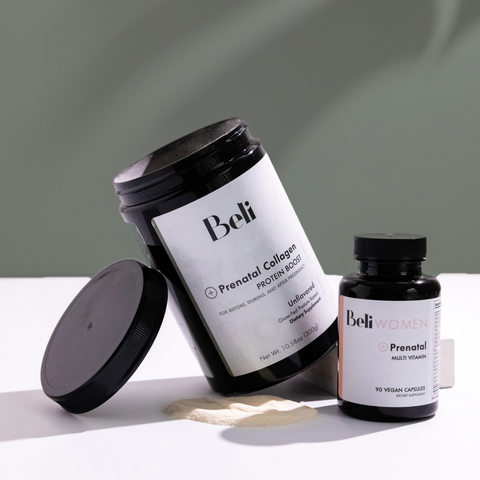When you’re trying to conceive, time can feel like the enemy. You’re always waiting for something—ovulation or your period, and if you’re going the IUI or IVF route, endless test results. But is there anything worse than the two-week wait? Whether you’re trying to conceive with fertility treatment or not, this is when the clock feels like it’s definitely slowed down (is that thing even working?!). So what can you do to pass the time between ovulation and that first pregnancy test? All the listicles out there sensibly advise keeping busy and journaling and talking it out, but we’re sharing more specific recommendations collected from the Beli community. Read on for seven tips for surviving the two-week wait without losing your mind.
Keep taking your prenatal vitamins
Go ahead and stress—for a minute
Give yourself space to prop yourself mentally for the anxiety and frustration ahead, but within reason. It can be an incredibly valuable way to validate your feelings heading into this waiting game. Yes, this is going to be difficult. Go ahead and sit with that. But let’s be clear that hyper focusing on your body is going to drive you crazy, so do your best to stop analyzing every little twinge as a potential pregnancy symptom. You might be certain that your boobs are definitely more tender than they were yesterday or that you’re actually feeling a little queasy, but that really doesn’t mean much. So focus on something else by embracing mindfulness techniques—yes, really! Distract yourself with a deep dive into all the mindfulness and meditation apps out there, pick one that doesn’t make you roll your eyes too hard, and start focusing all of that nervous energy on mastering deep breathing or Qigong. It’s a great way to balance yourself out.
Prep your support system
If you’ve been vocal about what’s happening in your journey to parenthood, this is a good time to alert your support system. Tell them ahead of time what will be most helpful to you, whether that’s a daily check-in, regular interference in the form of coffee dates, or radio silence. This might also be a good time to plan a weekend away with your significant other so you can enjoy one another without the pressure of trying to conceive (assuming your doctor gives you the all-clear on sex).
Channel your energy into something productive
Make the most of your nervous energy by embracing healthy living. This is the perfect time to focus on eating well, getting regular sleep, daily movement and healthy ways to manage stress (which may be a little high right about now!).

Pro tip—up your protein intake. Collagen protein in particular can help reduce some of the more unpleasant pregnancy symptoms, like nausea, anxiety and constipation, by balancing blood sugar. Beli Collagen Protein Boost is an ultra-clean, filler-free collagen that makes it easy to bump up your protein intake without worrisome additives, an important consideration when you’re actively trying to conceive.
Dive into self-care
Grant yourself the gift of a hall pass of sorts—unlimited opportunity to indulge yourself. We aren’t talking about bottomless margaritas, obviously, but a ninety-minute massage, a mani-pedi, binging The Morning Show, a leisurely meal at your favorite restaurant, or whatever helps you de-stress? All excellent options that you should execute immediately.
Get off the internet
Avoid the temptation to google TTW, the two-week wait, or any search term that comes close. The internet is positively bursting with successful and unsuccessful tales, and the truth is that not a single one of them has any bearing on your situation. It doesn’t matter that Niki294 or GetInMyBelly had sore boobs and a headache and abdominal twinges on the lower right side (which is exactly what happened the month one of them conceived their son), and it may breed false hope. Do something you find empowering instead, and for your own sanity, steer clear of the internet.
Schedule the date of your pregnant test—and stick to it
In other words, don’t test too early. Even if you are pregnant, testing too early runs the risk of a false negative—and all the misery that comes with it (1). While traces of HCG are present about six days after implantation, the body needs time to build up enough to show on a test. Generally, that takes about 10 days, but keep in mind that results can vary based on the sensitivity of the test. If you can hold out until the day of the two-week mark to test, you’ll be dealing with far more accurate results.
The Bottom Line
The two-week wait feels like it lasts forever, but we promise, this too shall pass. Regardless of what happens, it’s best to stay in the moment as much as you can. Don’t worry about trying to emotionally prepare yourself. Lean on your partner, do what you can to support yourself in the here and now, and focus on the things that are within your control. Every path to parenthood is different, and that can be a really important reminder right about now.
Article Resources
- Pregnancy Tests. Cleveland Clinic. (2022). https://my.clevelandclinic.org/health/diagnostics/9703-pregnancy-tests


